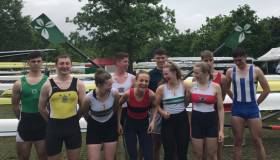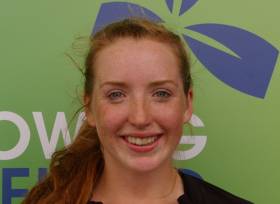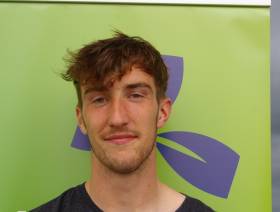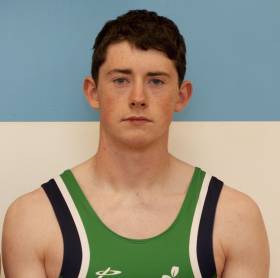Displaying items by tag: Casey
Silver Dream For Ireland at World Junior Championships
#Rowing: Ireland’s Aoife Casey and Margaret Cremen took a silver medal at the European Junior Rowing Championships today in Germany. The Skibbereen/Lee crew took second behind dominant crew Germany, and ahead of Italy, who took bronze. In a strong field, Denmark, the Czech Repbublic and Britain took the next three places. Ireland had the best last 500 metres, pushing up on Germany, but Italy came strong at the end to give the girls in green a small scare.
Casey, a daughter of Ireland coach Dominic, represented Ireland as a junior at the World Championships last year, while Cremen took a bronze medal at the Coupe de la Jeunesse in 2016.
Ireland’s three other crews placed in the top 10 to make it a very satisfactory campaign in Krefeld.
European Junior Championships, Krefeld, Germany (Selected Results; Irish interest, Day Two)
Men
Pair – Semi-Final B: 6 Ireland (A Johnston, R Corrigan) 7:17.95. B Final: 4 Johnston, Corrigan 7:20.57.
Sculling, Quadruple – Semi-Final B: 5 Ireland (J Quinlan, J Keating, M Dundon, B O’Flynn) 6:20.31. B Final: 4 Ireland 6:24.6
Women
Pair – Semi-Final A: 4 Ireland (G McGill, E O’Reilly) 7:51.31. B Final: 3 Ireland.
Sculling, Double – Semi-Final B: 2 Ireland (A Casey, M Cremen) 7:26.83. A Final: 1 Germany 7:21.64, 2 Ireland 7:25.84, 3 Italy 7:28.32; 4 Denmark 7:31.32, 5 Czech Republic 7:40.58, 6 Britain 7:44.31.
#Rowing: Ireland’s Margaret Cremen and Aoife Casey finished second in their semi-final and will compete in the A Final of the double sculls at the European Junior Rowing Championships in Krefeld in Germany. The Skibbereen/Lee combination were just .31 of a second off winners Denmark in their race and had the second-fastest time overall as they head into the A Final.
Three other crews – the men’s pair and quadruple and the women’s pair – finished outside the A Final places.
European Junior Championships, Krefeld, Germany (Selected Results; Irish interest)
Men
Pair – Semi-Final B: 6 Ireland (A Johnston, R Corrigan) 7:17.95.
Sculling, Quadruple – Semi-Final B: 5 Ireland (J Quinlan, J Keating, M Dundon, B O’Flynn) 6:20.31.
Women
Pair – Semi-Final A: 4 Ireland (G McGill, E O’Reilly) 7:51.31.
Sculling, Double – Semi-Final B: 2 Ireland (A Casey, M Cremen) 7:26.83.
Fifth Place in Semi for Battling Junior Double at World Rowing
#Rowing: Ireland's Ronan Byrne and Daire Lynch finished fifth in their semi-final of the junior double sculls at the World Rowing Championships in Rotterdam today. Drawn in the very tough lane one and battling against the worst of the wind, the Irish passed Lithuania and pressed the Netherlands hard, though the host nation held on to fourth. Germany, Italy and Hungary took the A Final places. Ireland will compete in a B Final.
The junior women's double of Aoife Casey and Emily Hegarty were also in the tough lane one. They finished sixth in a race won by Greece. Ireland will fight for a good placing in the B Final on Sunday.
World Rowing Championships, Rotterdam (Irish interest; selected results)
Men
Lightweight Pair - A Final: 1 France 7:14.18, 2 Denmark 7:15.30, 3 Britain (J Cassells, S Scrimgeour) 7:16.49; 4 Ireland (M O'Donovan, S O'Driscoll) 7:24.6, 5 China 7:32.48, 6 United States 7:36.91.
Lightweight Single Sculls - A Final: 1 Ireland (P O'Donovan) 7:32.84, 2 Hungary (P Galambos) 7:36.95, 3 Slovakia (L Babac) 7:38.89; 4 Slovenia (R Hrvat) 7:41.07, 5 Germany (K Steinhuebel) 7:48.66, 6 Serbia (M Stanojevic) 7:49.03.
Junior Double Sculls - Semi-Final One (First Three to A Final; rest to B Final): 1 Germany 7:17.47, 2 Italy 7:18.14, 3 Hungary 7:29.93; 5 Ireland (R Byrne, D Lynch) 7:36.48.
Women
Four - A Final: 1 Britain (3 H Nixon) 7:16.28.
Junior Double Sculls - Semi-Final Two (First Three to A Final; rest to B Final): 1 Greece 7:57.20, 2 Germany 7:58.97, 3 Australia 7:59.61; 6 Ireland (A Casey, E Hegarty) 8:12.31.
Fine Finish Sees Ireland Into Second World Rowing A Final
#Rowing: Ireland’s under-23 lightweight quadruple joined the under-23 lightweight pair at the A Final stage of the Under-23 World Championships in Rotterdam. The crew of Fintan McCarthy, Shane O’Connell, Stephen O’Connor and stroke Colm Hennessy finished second to Britain in a fine semi-final. Ireland and Sweden held the qualifying places behind Britain for a good part of the course, but New Zealand mounted an attack in the final third. Ireland upped their rate and held out for second, with Sweden also moving into the A Final.
The under-23 heavyweight quadruple finished fifth in their semi-final. The race was won by Australia, with New Zealand and Britain booking their A Final places by taking second and third. Ireland fought with Ukraine to avoid last and held out at the end to win this battle.
World Rowing Championships, Rotterdam (Irish interest; selected results)
Men
Under-23 Lightweight Pair - Semi-Finals (First Three to A Final; rest to B Final) - Semi-Final One: 1 Greece 6:39.18, 2 Switzerland 6:40.01, 3 China 6:44.52. Semi-Final Two: 1 Ireland (S Mulvaney, D O’Malley) 6:46.20, 2 Turkey 6:49.11, 3 United States 6:50.75.
Under-23 Quadruple - Semi-Finals (First Three to A Final; rest to B Final) - Semi-Final One: 1 Poland 5:51.05, 2 Italy 5:52.38, 3 Germany 5:52.53. Semi-Final Two: 1 Australia 5:54.34, 2 New Zealand 5:56.53, 3 Britain 5:56.93; 5 Ireland (D Buckley, J Casey, P Boomer, S McKeown) 6:12.94.
Under-23 Lightweight Quadruple - Semi-Finals (First Three to A Final; rest to B Final) - Semi-Final One: 1 Italy 6:07.44, 2 Canada 6:09.42, 3 Germany 6:10.05. Semi-Final Two: 1 Britain 6:06.01, 2 Ireland (F McCarthy, S O'Connell, S O'Connor, C Hennessy) 6:07.18, 3 Sweden 6:07.28.
Ireland Quadruple Makes World Rowing Semi-Finals
#Rowing: Ireland’s under-23 heavyweight quadruple qualified for the semi-finals at the World Rowing Championships in Rotterdam today. The crew of Daniel Buckley, Jack Casey, Patrick Boomer and Sam McKeown took the third qualification place behind Britain and Russia in their repechage. They join the Ireland under-23 lightweight pair and lightweight quadruple, which qualified from their heats.
World Rowing Championships, Rotterdam (Selected Results; Irish interest)
Men
Under-23 Quadruple - Repechage One (Three to A/B Semi-Finals; rest to C Final): 1 Britain 5:54.05, 2 Russia 5:56.18, 3 Ireland (D Buckley, J Casey, P Boomer, S McKeown) 5:57.67.
Junior Doubles Impress at Cork Regatta
#Rowing: NUIG and UCC won the division one men's and women's fours by big margins in the first set of Sunday finals at Cork Regatta at the National Rowing Centre. The division one doubles provided a stage for junior crews with international aspirations. In changeable conditions, Aoife Casey and Emily Hegarty won in an excellent time and Ronan Byrne and Daire Lynch were second to senior internationals Shane O'Driscoll and Mark O'Donovan.
Cork Regatta (Coillte Grand League), National Rowing Centre, Sunday
Men
Four - Div One - A Final: 1 NUIG (senior) 6:15.798. Div Two, coxed - A Final: 1 Cork (club 2) 6:45.96; 4 Presentation (jun 18) 7:01.82. B Final: 5 Pres (jun 16) 7:45.27.
Sculling - Double - Div One - A Final: 1 Skibbereen (M O'Donovan, S O'Driscoll; sen) 6:35.19, 2 Shandon/Clonmel 6:42.47; 6 Shandon A (inter) 7:07.91. B Final: 2 Shandon (jun 18) 6:51.83. C Final: 5 Cork (club 1) 7:51.21.
Single - Div Two - A Final: 1 Skibbereen (K Mannix; jun 18) 7:30.79, 2 Carlow (J Keating; jun 16) 7:32.62; 4 Lee (H Sutton; club 2) 7:38.78.
Women
Four - Div One - A Final: 1 UCC (sen) 7:08.25; 3 Shandon (jun 18) 7:17.69.
Sculling, Double - Div One - A Final: 1 Skibbereen (E Hegarty, A Casey; jun 18) 7:13.15, 2 Bann (jun 18) 7:22.69; 5 Belfast BC (club 1) 7:34.93. B Final: 2 Commercial (inter) 7:47.37; 3 Skibbereen (sen) 7:47.68.
Ireland Junior Quadruple Are Afloat Rowers of the Month For August
#Rowers of the Month: The Afloat Rowers of the Month for August are the Ireland junior quadruple scull which won two gold medals at the Coupe de la Jeunesse in Szeged in Hungary. In early September, the senior team would make their mark at the World Championships, but in August it was the juniors which came away with a five-medal haul. The junior women’s double of Aoife Casey and Emily Hegarty took silver on Saturday and Sunday and single sculler Dervla Forde took bronze on the Sunday. But the most successful crew was the junior men’s quadruple of Colm Hennessy, Eoghan Whittle, Patrick Munnelly and Andrew Goff. They had also taken gold at the 2014 Coupe.
Rower of the Month awards: The judging panel is made up of Liam Gorman, rowing correspondent of The Irish Times and David O'Brien, Editor of Afloat magazine. Monthly awards for achievements during the year will appear on afloat.ie and the overall national award will be presented to the person or crew who, in the judges' opinion, achieved the most notable results in, or made the most significant contribution to rowing during 2015. Keep a monthly eye on progress and watch our 2015 champions list grow.


































































